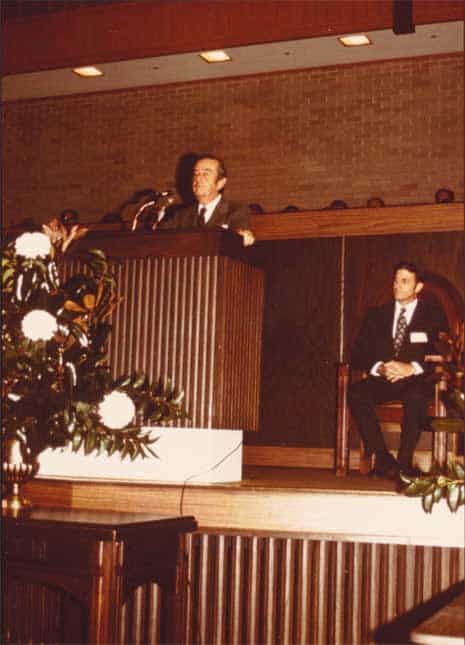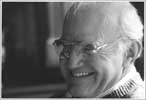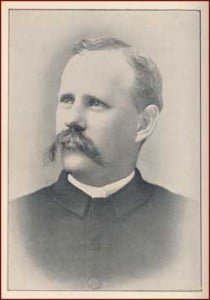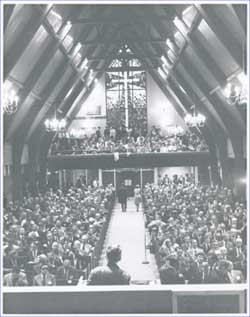They Had No Manual, but a New Presbyterian Church was Born.
Gathering in Briarwood Presbyterian Church in Birmingham, Alabama, were teaching and ruling elders ready to begin a new Presbyterian denomination. Their date of gathering, or organization, was December 4, 1973, as date consciously chosen with an eye to the past. They began this new Reformed church on the same day and month as the organization date for the mother church that they were leaving, the Presbyterian Church, U.S., commonly known in those years as the Southern Presbyterian Church. That denomination had begun on December 4, 1861 as the Presbyterian Church of the Confederate States of America. Later, that name was changed to the Presbyterian Church in the United States, after the War between the States.
In choosing to organize the new denomination on that anniversary date, the new denomination was making a statement, laying claim as the faithful continuing church, the remnant leaving behind the unfaithful or disobedient. In fact, the Continuing Presbyterian Church was the name that they first gathered under in the years and months leading up to their official organization. That they did not desire to continue as yet another regional church was evidenced by the name they chose for the new denomination, the National Presbyterian Church (though a year later, that name was changed to the Presbyterian Church in America).
 Reformed men were obviously interested in reforming the church. And so ever since it was clearly discovered that the Presbyterian Church in the United States had apostatized with no hope to bring it back to its historic roots, men and women had been praying and working, and working and praying, for this historic occasion. Ruling Elder W. Jack Williamson was chosen as the first moderator, with Dr. Morton Smith elected as Stated Clerk. Ministries then in planning and those already exercised in action, came together in rapid fashion: Mission to the World, Mission to the United States, Christian Education and Publications were organized by the delegates. With godly and wise coordinators to lead them, the work began to raise up a church faithful to the Scriptures, true to the Reformed Faith, and obedient to the Great Commission of Jesus Christ.
Reformed men were obviously interested in reforming the church. And so ever since it was clearly discovered that the Presbyterian Church in the United States had apostatized with no hope to bring it back to its historic roots, men and women had been praying and working, and working and praying, for this historic occasion. Ruling Elder W. Jack Williamson was chosen as the first moderator, with Dr. Morton Smith elected as Stated Clerk. Ministries then in planning and those already exercised in action, came together in rapid fashion: Mission to the World, Mission to the United States, Christian Education and Publications were organized by the delegates. With godly and wise coordinators to lead them, the work began to raise up a church faithful to the Scriptures, true to the Reformed Faith, and obedient to the Great Commission of Jesus Christ.
› Photo from the First General Assembly in 1973, with W. Jack Williamson at the podium, and Rev. Frank Barker seated, at the right.
Words to live by: There is usually great excitement over a new birth in a family. And so there was great excitement over the birth of a new denomination. Southern conservative Presbyterians had gone through many of the same struggles that Northern conservative Presbyterians endured just a few decades earlier. In both cases, the Church had been hijacked by the liberals. But godly men and women stood for the faith once delivered unto the saints, and wouldn’t let historical attachments hold them captive to a decaying visible church. They voted with their feet and came out and were now separate. Praise God for their obedience to the Word of God and the testimony of Jesus Christ.







